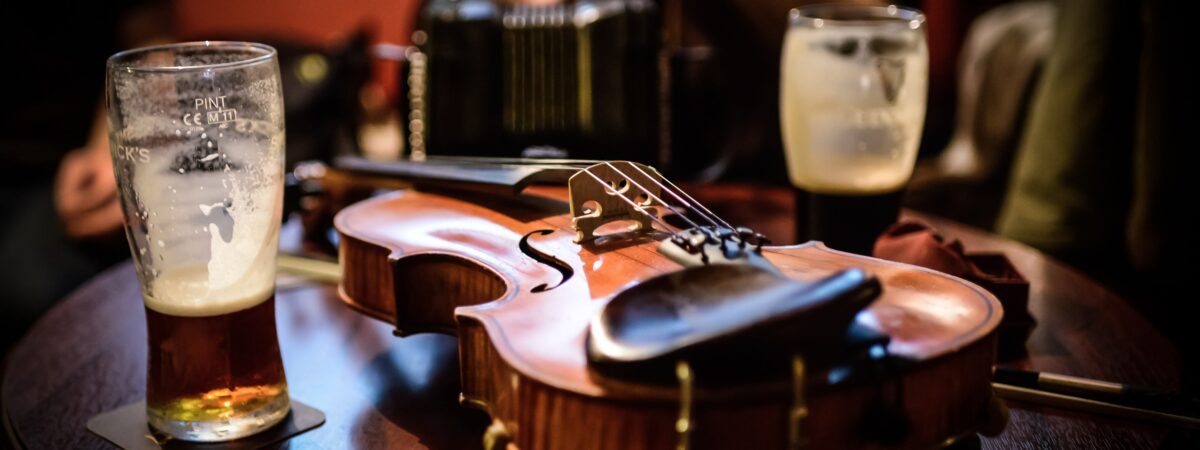
Ireland’s Irish pubs are part of the country’s heritage. A historical and cultural heritage to which the Irish are strongly attached. It has to be said that these establishments have always contributed to a certain typically Irish art of living. But are you sure you know everything there is to know on the subject?
Here are 5 facts about Irish pubs you need to know!

Sean’s Bar – Ireland’s oldest Irish pub
In Ireland, it’s a bit of a competition, and every Irish pub boasts of being the oldest in Ireland… But archaeologists have decided that the oldest Irish pub is Sean’s Bar in Athlone, County Westmeath. Archaeological digs have shown that some of the walls used in its construction date back… to the 9th century!
Coins from the period were also found (now on display at the National Museum of Ireland in Dublin).
The Brazen Head in Dublin is also a fairly old Irish pub. The latter even boasts an inscription hand-engraved by a customer and dating back to 1726. The inscription was made on a window frame and reads:“John Langan halted here 7th August 1726“.
It’s still possible to see it on the way to Brazen Head today…

An Irish pub – © Marc Braner
O’Sullivan, O’Malley, Murphy’s…etc. These are the Irish names you’ll usually come across on the front of Irish pubs in Ireland. Although it’s no longer a requirement today, it used to be that the owner of the premises had to display his surname on the sign of his establishment.
The purpose of this 1872 law was to make the owners of the premises more responsible, by making themselves known by name as soon as they entered the Irish pub. (Drinking was already highly regulated at the time, and the authorities couldn’t think of a better way to monitor the legality of each establishment).
Since then, although it’s no longer compulsory, the tradition has remained. That’s why many Irish pubs are named after their owners. Typically Irish names, of course. There are, of course, a few exceptions, but this tradition remains dear to the Irish heart).
Things have changed a lot since then… But Irish pubs used to be required to be open continuously, day and night. Uninterrupted.
This was due to Brehon Law, a 6th-century law which required every Irish lord to have an establishment capable of accommodating anyone wishing to eat, drink or sleep. That’s why Irish pubs also served as inns… in case the king himself, or a traveler, sought hospitality…
Astonishing, but historically true. Irish pubs were once used as temporary storage facilities for corpses. The law of 1846 was very precise on this subject: each time an individual died, his or her body had to be deposited in the pub, before any new arrangements could be made.
It was thought that the low temperatures in beer cellars slowed down the decomposition process… Nevertheless, the presence of these bodies was a blot on the decorum, and the law was not repealed until 1962.
Don’t worry: there won’t be any corpses on your next visit to an Irish pub. Phew…

Half pints
It wasn’t easy being an Irish pub customer in those days… Anyone who was more than 4km away from home had to show their credentials to the pub owner, and justify that they had come for a pint in good faith, without looking for a fight or excessive drinking.
The alcoholism of some Irish people led them to seek their pint further and further afield, knocking on the doors of new Irish pubs… This law provided a better framework for alcohol consumption in Ireland, to prevent abuse and possible fights.
This law was repealed in 1943.